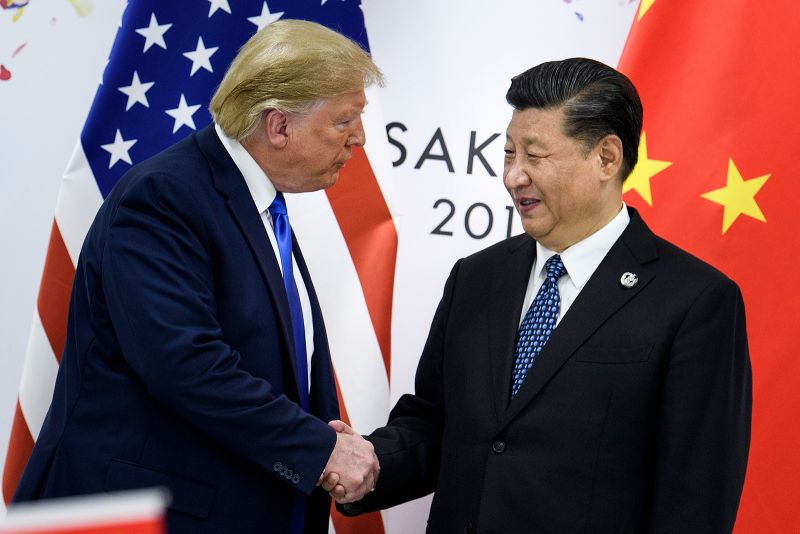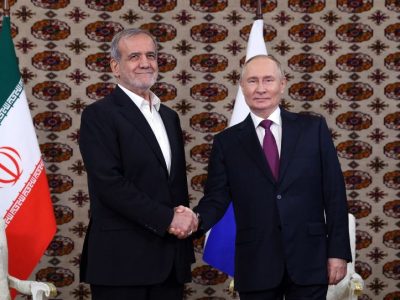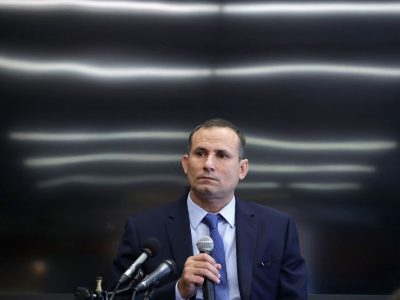
Don’t let Israel’s approval of the Gaza ceasefire fool you: There are deep schisms in Israeli politics that could threaten the longevity of the deal.
The ceasefire as agreed to in Qatar is set to last 42 days. Over that period, 33 hostages are expected to be freed in exchange for hundreds of Palestinian prisoners, there will be a slow withdrawal of the Israeli military from urban centers in Gaza and a surge of humanitarian aid.
But it is very much not a permanent end to the war, nor does it guarantee freedom for the 65 hostages who would remain in Gaza at the end of this first phase – many of whom are likely dead. That is yet to be negotiated, starting by day 16 of the truce.
Whether any of it comes to pass may be dictated by the vagaries of Israeli politics. The deal to which Israeli Prime Minister Benjamin Netanyahu agreed is remarkably similar to a proposal he railed against for almost a year.
“We haven’t committed to any of the delusional demands of Hamas,” the Israeli prime minister said in February last year. “I told (US Secretary of State) Antony Blinken we are nearly there with complete victory.”
The proposal he was criticizing would have seen a multi-stage ceasefire, the phased withdrawal of Israeli troops, and the release of hundreds of Palestinian prisoners. That happens to be the exact thing to which Netanyahu has now agreed.
Though Hamas is undeniably weakened, Israel has not achieved the “complete victory” that Netanyahu long promised. “We assess that Hamas has recruited almost as many new militants as it is lost,” Blinken said this week.
Netanyahu’s extremist allies in government are confused by his sudden about-face.
“I love Prime Minister Benjamin Netanyahu and will make sure that he continues to be prime minister,” Itamar Ben Gvir, the national security minister, said in a statement Friday morning. “But I will leave (government) because the deal that was signed is disastrous.”
Ben Gvir has said that his Jewish Power party will withdraw from the governing coalition if the ceasefire and hostage deal goes through. His departure would not by itself be enough to topple the government. And he could well return – it will be hard to step away from power for a man who not long ago was on the very fringes of politics, having been convicted of inciting terrorism and considered so extreme that the Israeli military rejected him from service.
But what could topple the government is if Ben Gvir is joined by Finance Minister Bezalel Smotrich in withdrawing from Netanyahu’s coalition. Smotrich, also an extreme right-wing nationalist, wants to make sure that the peace in Gaza is not permanent, and that Israel goes back to war after the 42-day ceasefire that is expected to see 33 hostages released.
While Smotrich’s departure would break Netanyahu’s coalition, his government could be saved by his rival, Yair Lapid of the opposition Yesh Atid party, who has offered a political lifeline to the prime minister by supporting him in the legislature. That means that Lapid would hold a sword over Netanyahu’s neck, could collapse the government and bring about an election whenever he chooses – a threat the prime minister will surely do anything to avoid.
It is unclear whether Netanyahu has given Smotrich any promises to secure his support – solving today’s crisis is more important than solving tomorrow’s. He is clearly keen for it, having met with Smotrich twice in the hours leading up to the ceasefire announcement in Qatar. President Biden said Wednesday “the plan says if negotiations take longer than six weeks, the ceasefire will continue, as long as the negotiations continue.” But were Israel to begin bombing on day 43, the agreement would collapse.
In the hours after the Qatari prime minister announced the agreement on Wednesday, Netanyahu’s office sent a cascade of press releases accusing Hamas of reneging on promises to give Israel a veto over some Palestinian prisoners due to be released.
The statements made clear that he was being tough by telling his team to stand firm. Those 11th-hour hitches may have been real – though Hamas denies it. But the very public chest-beating crediting the prime minister’s “firm stance” was surely intended to placate the domestic, far-right audience. Once the differences were bridged, the cabinet appeared to fast-track its approval – moving a planned Saturday meeting to the final hours of Friday.
Another factor may also be at the center of Netanyahu’s capitulation to this initial ceasefire: incoming American president Donald Trump.
His self-styled image as the American president who ends foreign wars will surely bring an enormous amount of pressure on Netanyahu to stay with the agreement, for which Trump has taken credit and dubbed “EPIC.”
Netanyahu was able to ignore President Joe Biden’s overtures, confident that he had an even more steadfast ally, Trump, waiting in the wings.
Now he has no such luxury.










